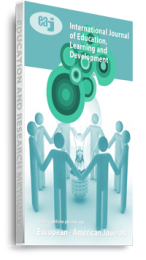The Xindi Applied Piano Pedagogy (XAPP) has been operating at the Music Education Institute of Xinghai Conservatory of Music (MEIXHCM) in China for the last three years. This self-formulated pedagogy was solely conceived by Professor Xindi, Director of the institute, in 2001. Since its inception, this somewhat innovative teaching method has proven quite controversial, with reactions from scholars, teachers and musicians within the field of professional music education. At the same time, this particular pedagogy has become an increasingly popular component of the swiftly growing market of community piano education nationwide, with the XAPP also having recently been introduced in several major cities in Australia and the US. Xin’s advocacy of practicality through the XAPP in piano education is considered comparable to John Dewey’s Pragmatism in education in many ways. However, in this article the commonalities they share are interpreted and discussed in accordance with two particular aspects, namely, the value of education and the reflection of education’s authenticity. Within the context of such discussion, this article investigates whether the XAPP is able to survive against the dominance of traditional piano methods in the modern era.
Keywords: accelerated learning, applied piano pedagogy; self-entertained learning, interest cultivation, practicability

